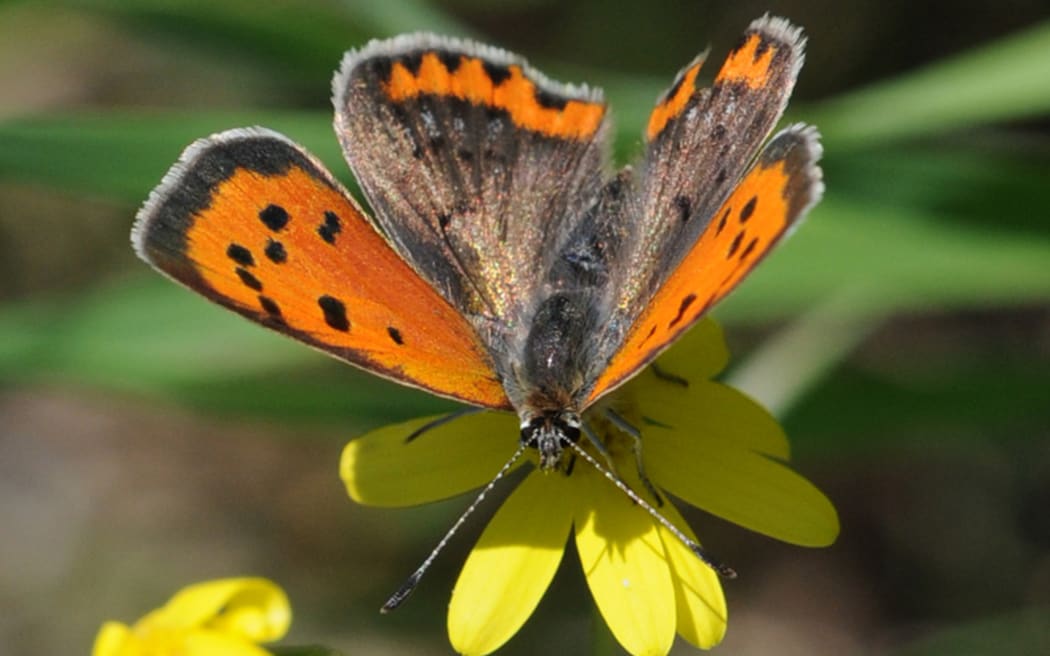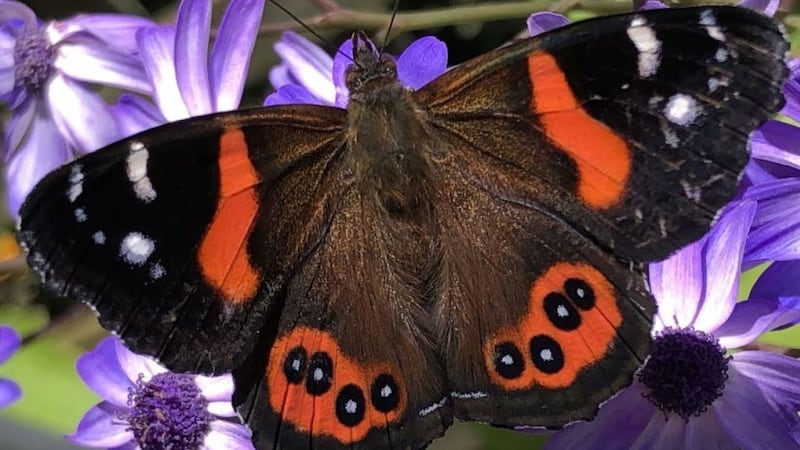The host plant of the red admiral is the stinging nettle - a plant many gardeners regard as a weed. Photo: Supplied / Jacqui Knight
By Libby Kirkby-McLeod, RNZ
The Moths and Butterflies of New Zealand Trust is concerned most people do not know about the country's native butterflies.
For over 15 years, the trust has worked to engage New Zealanders and ensure our biodiversity promotes a thriving moth and butterfly population.
Jacqui Knight said Kiwis loved the monarch butterfly, and grew swan plants to encourage them, but our New Zealand butterflies needed support too.
"Every butterfly species has its own family of plants. We have a gorgeous red admiral butterfly and its host plant is stinging nettle," she said.
The problem was most people saw stinging nettle and thought: 'Let's get rid of it.' This was a problem for the red admiral.
Knight said the New Zealand copper butterfly relied on the pohuehue plant as its host.
"It's a wonderful small leafed shrub that grows near the coast," she said.

The copper butterfly. Photo / Wikimedia Commons
Knight used to think she was helping caterpillars by moving them, but what they most needed was for people not to interfere.
"An entomologist reminded me some years ago that caterpillars have been doing quite nicely for millions of years without my help."
Sunscreen, cleaning products, make-up and hand-sanitiser could all damage the sensitive caterpillar skin.
Caterpillars could move up to 30m or 40m to pupate which was why people might sometimes find them on the ground. Anyone finding one and moving it back to the host plant was not helping it.
Knight said if people took the time to learn about our native butterflies and the plants that hosted them, they would be doing butterflies and the environment a big favour.
"Butterflies are pollinators and they are also an indicator species which means when you see no butterflies you know there is something going on with the environment."

